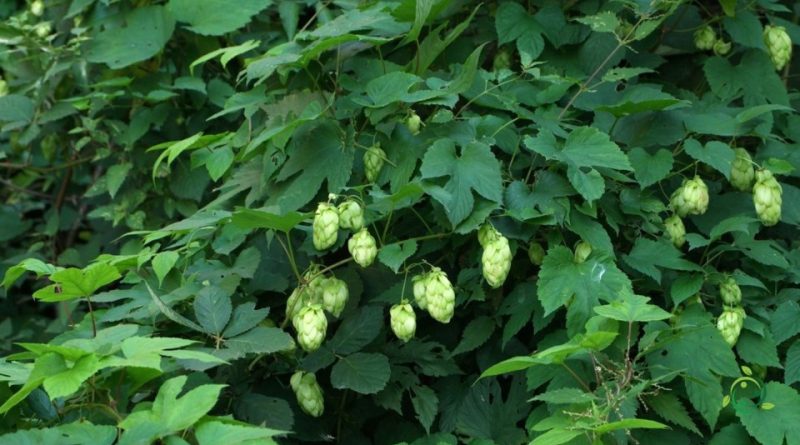Nutritional value of hops
Nutritional value of hops
Hop (Humulus lupulus L., 1753) is a plant of the Cannabaceae family native to the temperate regions of the northern hemisphere and widely cultivated for its flowers known as hop cones, which are essential in the production of beer.
Characteristics –
Hop is a perennial plant characterized by climbing stems that climb vertical supports such as trellises or wires. Its leaves are opposite, lobed and toothed, with a vine-like appearance. Hop flowers, called “cones”, are the most interesting elements for the beer industry. They are small, green or yellow and contain the resins and essential oils that give the beer its characteristic bitter and aromatic flavour.
There are several varieties of hops, each with unique characteristics. Common varieties include Cascade, Centennial, Saaz, Hallertau, Tettnang, Fuggle and many more. Each hop variety can provide different bitterness and aroma profiles to beer, resulting in a wide variety of beer styles.
In addition to its use in brewing, hops are also used in other beverages, such as some styles of cider, and some food products and supplements. It also has some medicinal properties, including potential calming and sedative effects.
Nutritional card –
Hops is a plant mainly used for the production of beer, where it is used to impart bitterness and aroma to the drink. It is not eaten directly as a food, so there is no specific nutrition fact sheet for hops as there are for commonly eaten foods.
However regarding vitamins, hops mainly contain vitamin B6 (pyridoxine) and folic acid (vitamin B9). Vitamin B6 is involved in the metabolism of proteins and carbohydrates, as well as in the synthesis of neurotransmitters. Folic acid is essential for the production of new cells, including red blood cells, and plays a key role in nervous system health.
As for mineral salts, hops mainly contain potassium, magnesium and calcium. Potassium is important for proper cell function, regulation of fluid balance, and heart function. Magnesium is involved in many cellular processes, including energy metabolism and bone health. Calcium is known for its role in bone and dental health, but it is also involved in muscle contraction and nerve transmission.
It is also important to note that hops are primarily used for their essential oils and bitter compounds that contribute to the flavor and aroma of beers. The quantity of vitamins and mineral salts contained in hops is not particularly high, and the intake of these substances through beer is generally limited. If you’re looking to increase your vitamin and mineral intake, it may be more helpful to consider other, more concentrated food sources of these nutrients.
Property –
Hops is a plant with important nutritional properties and which gives beer its characteristic aromas and flavours. There are different varieties of hops, each of which can bring different notes, ranging from fruity to herbaceous, from floral to resinous. Hop aroma is one of the key elements in defining the style and sensory profile of a beer.
Hops contain compounds called alpha acids that have antibacterial properties. These compounds help prevent the growth of undesirable bacteria in the beer and contribute to its preservation over time. Additionally, the polyphenols found in hops play a role in protecting the final product from rancidity and oxidation.
In addition to aromas, hops contribute to the bitterness of beer. Hops contain beta-acids, which are extracted during the boiling stage of the brewing process. The bitterness balances the sweetness of the malt and contributes to the complexity of the overall flavour.
Hops have sedative and calming properties. In fact, hops have been traditionally used for their sedative and calming properties. Some compounds found in hops, such as humulone acid and lupulone acid, have been shown to have relaxing effects on the nervous system. This has led to the use of hops in herbal teas and supplements to promote sleep and relieve anxiety.
Hops also contain flavonoids and other antioxidant compounds that may have health benefits. These compounds may play a role in protecting cells from damage caused by free radicals and may have anti-inflammatory effects. However, it is important to note that research into the specific effects of hop consumption on human health is still ongoing.

